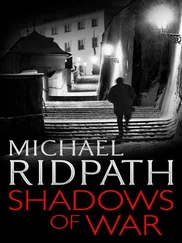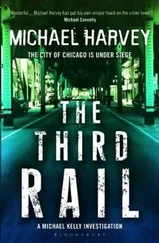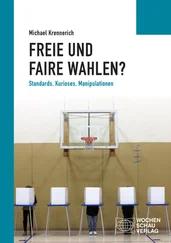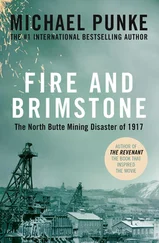Michael Ridpath - Free To Trade
Здесь есть возможность читать онлайн «Michael Ridpath - Free To Trade» весь текст электронной книги совершенно бесплатно (целиком полную версию без сокращений). В некоторых случаях можно слушать аудио, скачать через торрент в формате fb2 и присутствует краткое содержание. Жанр: Триллер, на английском языке. Описание произведения, (предисловие) а так же отзывы посетителей доступны на портале библиотеки ЛибКат.
- Название:Free To Trade
- Автор:
- Жанр:
- Год:неизвестен
- ISBN:нет данных
- Рейтинг книги:3 / 5. Голосов: 1
-
Избранное:Добавить в избранное
- Отзывы:
-
Ваша оценка:
- 60
- 1
- 2
- 3
- 4
- 5
Free To Trade: краткое содержание, описание и аннотация
Предлагаем к чтению аннотацию, описание, краткое содержание или предисловие (зависит от того, что написал сам автор книги «Free To Trade»). Если вы не нашли необходимую информацию о книге — напишите в комментариях, мы постараемся отыскать её.
Free To Trade — читать онлайн бесплатно полную книгу (весь текст) целиком
Ниже представлен текст книги, разбитый по страницам. Система сохранения места последней прочитанной страницы, позволяет с удобством читать онлайн бесплатно книгу «Free To Trade», без необходимости каждый раз заново искать на чём Вы остановились. Поставьте закладку, и сможете в любой момент перейти на страницу, на которой закончили чтение.
Интервал:
Закладка:
Today, though, I rode above them all. I had made $400,000 in the last twenty-four hours; who knew how much I would make in the next? I had an irrational conviction that any trade I did would turn money into more money. I knew this would not last. But I should enjoy it while I could. Eventually luck would abandon me. Fifty-fifty trades would all go against me. Certainties would be blown away by the unforeseen. My computer would develop undetectable bugs. My job was like a drug with highs and lows. Was it addictive? Probably.
It was certainly more exciting than the large American bank I had joined after Cambridge. I had spent six years in the credit department, analysing companies that borrowed from the bank. I had to decide whether the companies would be in a position to give the money back. The job was intellectually interesting, but the bank had done its best to make it boring. It felt like a grey factory, staffed with grey workers who had weekly quotas of a certain number of pages of analysis to produce.
It had suited me though. The bank had been very understanding about the hours I kept. They obviously thought it was good public relations. The general manager of the London office was an American, an ex-college football player and a devoted sports fan. It was fine with him if I arrived at work late or left early. Holiday days were not counted scrupulously; I could have as much unpaid leave as I wished. The whole office was proud of its Olympic eight-hundred-metre bronze medallist.
They hadn't understood when I had given up running. None of them had. The general manager had taken it personally. There was nothing wrong with me. I was still young. In four years' time the gold medal was mine for the taking. How could I let him down like that?
The grey work got greyer. I was expected to work a full day. With nothing else to distract me, the drudgery became unbearable. I needed something new, a challenge, something to win.
So when I saw an advertisement in the Financial Times for a junior trader, I put together a CV and sent it in. The advert said that a small fund management firm, De Jong & Co., was looking for someone with good credit experience whom they could train to become a portfolio manager. After two more weeks of tedium, I had received a reply. They wanted to see me! I liked the people I had met at my interviews. I thought them both bright and friendly, people from whom I could learn a lot.
I was particularly impressed with the man I was to work for, Hamilton McKenzie. He was a neat, slim Scot of medium height, in his late thirties. His prematurely grey hair always looked as if it had just been cut, and he wore a beard which was carefully trimmed close to his chin. His blue eyes were cold and aloof until he focused them on you. Then they seemed to bore right into your mind, exposing everything, evaluating what was revealed. Indeed Hamilton appeared to be thinking all the time, judging, calculating. At first I found this intimidating, and could not feel comfortable in his presence. But he was an excellent teacher. He saw things clearly, and he explained things clearly. He often made me feel like an idiot for not reaching his conclusions, but he always took the time to lay out how he himself had arrived at them. His criticism, although harsh, was always constructive, and he was determined to teach me all he knew about portfolio management.
And he knew a lot. He had the reputation of being an inspired taker of risk. Much of modern portfolio theory emphasises the hopelessness of trying to beat markets which are efficient. Many modern portfolio managers concentrate on matching or narrowly outperforming the market. Hamilton thought this was ridiculous. His view was that the institutions who gave their money to De Jong to manage, paid their fees for ideas. He believed his duty to them was to make as much money for them as he could, any way he could. This meant he took risks, big risks. But he did not take them indiscriminately. Rather, he would wait until an attractive opportunity arose, analyse all the risks, avoid or hedge as many as he could, and then, when he was sure the odds were in his favour, make his move. De Jong & Co.'s clients were happy with the results, and gave him more money.
The firm had been founded by George De Jong twenty years earlier. It had originally managed the funds of a number of prominent charitable trusts. Since Hamilton had joined eight years previously, the firm had attracted clients from overseas, especially Japan, bringing the total funds under management up to two billion pounds. For the last five years Mr De Jong, who was now in his late sixties, had come into work only three mornings a week. He still retained total control of the firm, and made a very good living out of it. The funds were invested in bonds in a range of currencies, and the management of these was left entirely in Hamilton's hands. Six people worked for him, including me.
Jeff Richards was the most senior of us, with two decades of investment experience. His job was to determine which way exchange rates and interest rates would move, and position his portfolios accordingly. A mild-mannered man with a very academic approach to the markets, he was generally quite successful. Rob Greenhalgh helped him in this, and was also responsible for managing the non-dollar bond positions. He was about my own age and had been with the firm two years. We also had a 'chartist', Gordon Hurley. He used the technical analysis of historical prices to forecast future prices. This seemed to me little better than reading tea leaves, but Gordon got it right more often than he got it wrong.
My role was to look after the dollar portion of the portfolio, which represented more than half our funds. This was Hamilton's area of interest, and one in which he still played an active part. Eventually, the idea was that I should share this role with Debbie, who was even newer on the desk than I. At the moment she spent most of her time on administration and legal documentation, and on some of the more harmless trading. We all shared one assistant, a quiet but highly efficient girl of twenty named Karen.
I had been part of this team for six months, and I loved it.
I continued up Bishopsgate until I reached the tall, black-glassed headquarters of the Colonial Bank. As the Colonial Bank's fortunes had dwindled, so had its usage of its headquarters, to the point where it now let out the top half of the building. De Jong had the twentieth floor, two from the top. I took the lift up, and entered the plush reception area, all polished mahogany, worthy leather-bound books, and eighteenth-century prints of old trade routes and sleek tea clippers in full sail. The room gave the impression of solidity, of distinction, of wealth earned a century before by the financiers of imperial trade, of conservative investment decisions quietly taken. The reality was that the firm was only twenty years old, and its customers' money was daily wagered against the market by Hamilton and his team behind the oak doors.
I went through those oak doors and entered the trading room of De Jong & Co. This was much smaller than the trading rooms of the investment banks, or brokers that bought and sold securities from customers round the clock. As a relatively small investment institution, De Jong did not have many people. Although it was more active than other investment managers, the firm did not trade round the clock. We only bought or sold bonds when we had a particular view on the market.
Nevertheless, even in its quieter moments, the room exuded an atmosphere of suppressed tension, which I found exhilarating. Here the fate of two billion pounds was deliberated. Information flowed in from all over the world, either through the telephones, through the screens, or on paper. It was analysed, debated, picked apart and then put together. A decision was made; to buy one security, to sell another, or simply to do nothing. Each decision resulted in the movement of millions of pounds. If we got it right, our clients would be tens or hundreds of thousands of pounds to the good. If we got it wrong… The responsibility was taken seriously by all of us.
Читать дальшеИнтервал:
Закладка:
Похожие книги на «Free To Trade»
Представляем Вашему вниманию похожие книги на «Free To Trade» списком для выбора. Мы отобрали схожую по названию и смыслу литературу в надежде предоставить читателям больше вариантов отыскать новые, интересные, ещё непрочитанные произведения.
Обсуждение, отзывы о книге «Free To Trade» и просто собственные мнения читателей. Оставьте ваши комментарии, напишите, что Вы думаете о произведении, его смысле или главных героях. Укажите что конкретно понравилось, а что нет, и почему Вы так считаете.












